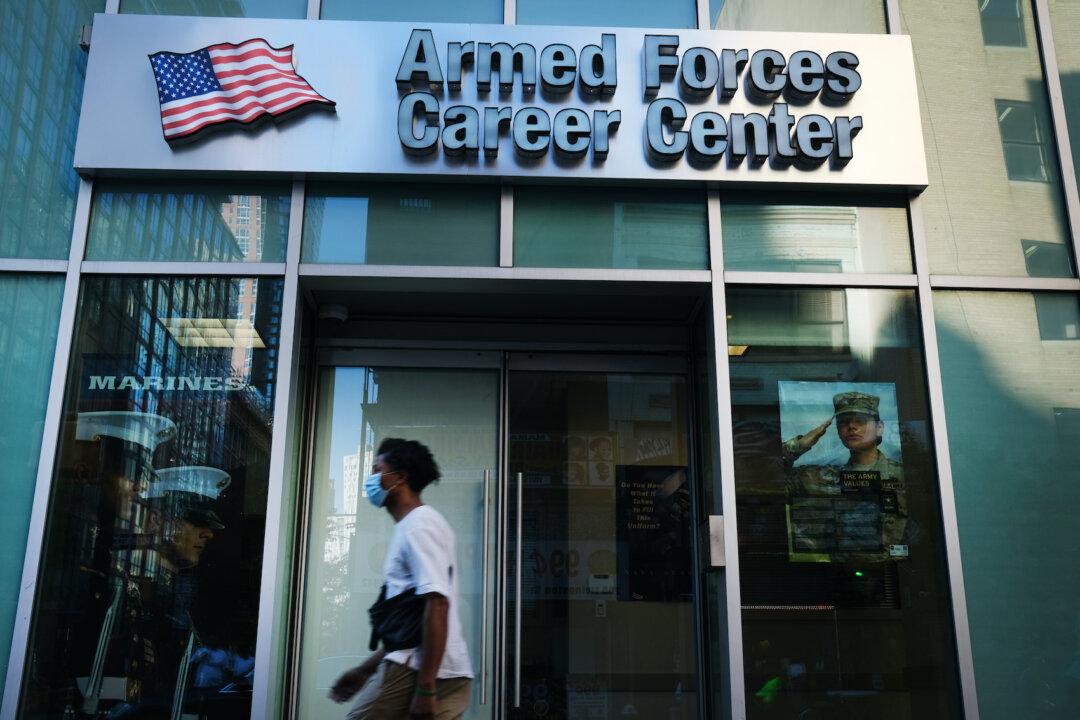A new Department of Defense Inspector General review, found that military recruiters had failed to comprehensively screen potential enlistees for connections to political extremist groups and criminal organizations.
The 82-page report published on Aug. 3, determined that while recruiters have been screening applicants, many did not complete all of the required steps in the files reviewed by the DOD’s Inspector General’s office.





